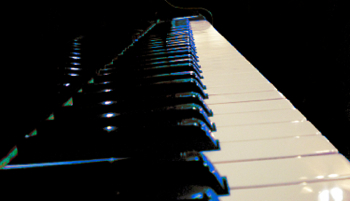 |
|
How Often Should I Have My Piano Tuned? Generally speaking, a piano should be tuned at least twice a year. Many professional and semi-professional musicians choose to have their pianos tuned three or four times a year. Brand new pianos (and restrung pianos) generally need to be tuned four times in the first year. Having your piano tuned more often will allow your piano to stay at a relatively consistent pitch, producing a more stable tuning. Also, it will allow for any minor repairs to be made. The longer a piano goes without service, the less stable it will be once it is tuned. Pianos that have gone more than a year or two without tuning generally need to be tuned more than once in order to produce a stable tuning. This is known as a pitch raise. Learn more about tuning.
About Pitch Raises We all know that over time the pitch of a piano will drop. If a piano hasn't been tuned in a few years (or longer), it may require a pitch raise. This basically is a rough tuning to bring the piano up to pitch before a final fine tuning. A single piano strings exerts about 160 pounds of pressure on the frame of the piano. With over 200 strings in a piano, this equates to over 16 tons of pressure (even more in larger grands). As the strings are pulled back up to pitch, the accumulative effect on the entire piano makes the overall pitch drop back down, which is why a rough pass is needed. Pianos that haven't been tuned in many years may need more than one rough pass before they can be properly tuned. Learn more about pitch raises.
Why Do Piano Strings Break?
There are several reasons why a piano string can break. Age, rust, string defects, or even a piano out of adjustment are some of the most common reasons. Learn more about breaking strings.
Humidity and Pianos Humidity changes can have a strong effect on pianos. All the wooden parts are susceptible to swelling and contracting due to humidity changes. As the relative humidity goes up, the soundboard expands which causes the pitch of the piano to drift sharp. Conversely, the pitch will begin to drop as the relatively humidity goes down. As the moving parts take on extra moisture, they can swell up causing sticking keys or notes that don't play. Repeated cycles of swelling and contracting can cause loose flanges, loose pins, clicking keys, etc. Learn more about the effects of humidity. |

